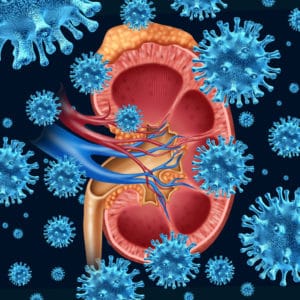Recommended Follow Up for Patients with Kidney Stones
If you have any questions, to schedule a consultation or if you need a second opinion, please contact us or call: 646-663-4421
Future Risk of Kidney Stone Formation
Patients with kidney stones have a significant chance of forming another stone in the future. Up to 50% of men and women with their first kidney stone will develop another renal stone within 10 years. For those men and women who have had more than one stone before, the chances are even higher.

Due to frequent kidney stone recurrence in some patients, we favor limiting CT scans and using renal US (ultrasound) instead whenever possible. While there are situations when CT scan is preferable, usually kidney (renal) ultrasound provides sufficient information.
Kidney Ultrasound after Lithotripsy (ESWL).
Patients who had ESWL lithotripsy or ureteroscopy should have ultrasound of the kidneys 2-3 months after the procedure to assure that all stones have been broken and that no new stones have formed.
Kidney Ultrasound after Ureteroscopy.
Usually a kidney ultrasound 4-6 weeks after ureteroscopy helps to verify that all stones are broken and no residual stones remain. There is a small chance of ureteral narrowing or stricture after ureteroscopy and ultrasound helps to detect possible problems early.
Metabolic Evaluation
All patients who have been diagnosed with a kidney or ureteral stone should have metabolic evaluation which includes serum calcium levels, serum parathyroid hormone (PTH) levels and serum uric acid level. In addition all children, and adults who had more than one episode of kidney stones and adults whose lifestyle (frequent travel) or profession (pilots, etc) are such that recurrence of kidney stone can present a significant challenge should have 24-hour urine collection performed.
Usually 24-hour urine collection is repeated within a few weeks to obtain better and more reliable information. Example of people who may want to have 24-hour urine collection in order to minimize the risk for stone formation are men and women with travel frequently on transcontinental flights or travel to areas where modern medical care is not readily available. Pilots are not allowed to work if they have kidney stones.
If you have any questions, to schedule a consultation or if you need a second opinion, please contact us or call: 646-663-4421
